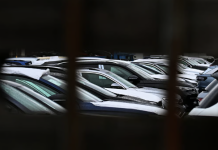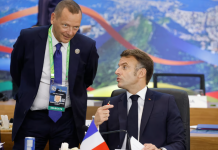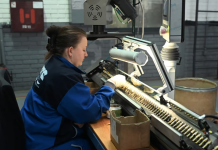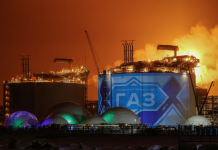Paramilitary force’s image tarnished by US genocide designation, say experts, as survivors hope for justice.
In June 2023, Ibrahim Shumo and some friends fled war-torn Sudan’s West Darfur, the members of the “non-Arab” Masalit tribe knew they would be killed if they stayed any longer.
They feared the paramilitary Rapid Support Forces (RSF) and their allied militias from “Arab tribes” – the mainly nomadic and pastoralist communities in Darfur. Sedentary farming tribes are referred to as “non-Arab”.
The RSF and its allies were targeting Masalit civilians in El-Geneina, the capital of West Darfur, ethnic killing that began days after war broke out between the RSF and the Sudanese army on April 15, 2023.
A United Nations panel of experts found in January 2024 that the RSF and allied militias killed up to 15,000 people in El-Geneina.
Nearly a year later, the United States agreed with the UN experts, Secretary of State Antony Blinken declaring on Tuesday that the RSF and its allies had committed genocide by attacking civilians and systematically murdering men and boys because of their ethnicity.
Blow to legitimacy
The determination led to US sanctions on several of the RSF’s shell companies in the United Arab Emirates (UAE) and against the group’s leader, Mohamad Hamdan “Hemedti” Dagalo.
Masalit survivors and analysts believe the designation and sanctions could isolate the RSF and permanently tarnish its image.
“The most lasting – permanent – effect of this designation … is that it dramatically hurts the prospect of Hemedti of taking a role in a future government and certainly, being in charge of a future government,” said Jonas Horner, an expert on Sudan and a visiting fellow at the European Council on Foreign Relations (ECFR), a think tank in Europe.
The US designation came two weeks before the end of President Joe Biden’s administration, prompting experts to accuse his administration of assuaging its guilty conscience with the move.
They told Al Jazeera that more pressure should have been applied sooner, as a basis for a more coherent US policy on Sudan, but an earlier genocide designation might have exacerbated public pressure on Biden to make a similar judgement about Israel’s war in Gaza.
“The Biden administration has a serious problem in that we know there are similar calls for a designation that Israel has committed genocide in Gaza,” said Suleiman Baldo, the founder of the Sudan Transparency and Policy tracker, a think tank following the war.
“But there is no way on Earth [Washington would impose] the same consequences on Israel which it has struck the RSF with,” he told Al Jazeera.
Despite the apparent double standard, Shumo said the US’s designation provides a brief sense of joy for the RSF’s victims.
“Since [the designation was announced], I can tell you that the Masalit are very happy,” he told Al Jazeera.
Reputation laundering
In 2003, Sudan’s army relied on Arab tribal militias to crush a rebellion in Darfur by mainly non-Arab groups, who were angered by their people’s political and economic marginalisation.
The Arab tribal militias called themselves the Popular Defence Forces but became known as the Janjaweed (“devils on horseback”) for the countless atrocities they committed – which likely amounted to ethnic cleansing and genocide, according to rights groups.
In 2013, Sudan’s then-President Omar al-Bashir repackaged the Popular Defence Forces militias into the RSF and tasked them with fighting rebellions and coup-proofing his regime.
Under Hemedti’s command, the RSF began coveting global legitimacy by advertising its cooperation with the European Union (EU) deal to crack down on undocumented migration, known as the “Khartoum Process.”
Then, after a popular uprising toppled al-Bashir in April 2019, the RSF hired human rights advisers and PR firms to help it rebrand as a benevolent force.
“There was an attempt by the RSF to provide services to civilians such as transportation and securing petrol for people in order for them to power basic services,” said Ibrahim al-Dourab, an adviser to the deceased governor of West Darfur Abakar.
“In my opinion, all of these efforts were nonsense … they were trying to buy the people and the street.”
In October 2021, the army and RSF waged a coup before turning on each other 18 months later in a bid for supremacy.
Rights groups and UN experts accuse both sides of committing grave crimes such as summary killings and welding starvation as a weapon of war.
The RSF has carried out additional atrocities such as systematically gang-raping women and girls and carrying out what the US now considers a genocide against the Masalit.
Washington’s designation damages the RSF’s chances of coveting global legitimacy from Western powers, said Horner from ECFR.
“Hemedti [and RSF] are now tarred with this designation and it will be hard to wash off,” he said.
A step towards justice?
The RSF decried the US Department of State’s determination of genocide and its decision to impose sanctions on Hemedti and RSF shell companies.
RSF adviser, Ali Musabel, told Al Jazeera that the US move was “unfair”.
“There was no legal committee – or any decision taken by an international court or commission – that made this determination,” he told Al Jazeera. “This decision was based on inaccurate information and reports about us.”
But the designation of genocide follows countless reports of atrocities committed in West Darfur by the UN, aid groups, local monitors, rights groups and Al Jazeera’s own extensive reporting.
Shumo hopes the US sanctions and designation will compel the EU to follow suit and push the International Criminal Court (ICC) to issue new indictments, including against Hemedti.
In July 2023, ICC chief prosecutor, Karim Khan, told the UN Security Council that his office was launching a new investigation into atrocities in Darfur.
“What happened to the Masalit really is a tragedy,” Shumo said. “I feel good about the decision to impose sanctions … but I hope it eventually leads to prosecuting Hemedti at the ICC.
“I lost 23 relatives to the RSF,” he told Al Jazeera.
One of them was his younger cousin, Abdelazeem, who was shot and killed as he tried to flee West Darfur along with tens of thousands of other civilians seeking safety in Chad.
They were terrified by the assassination of West Darfur Governor Khamis Abakar, who accused the RSF of genocide in a television interview, in June 2023.
The RSF opened fire on the fleeing people.
“We were looking for him [in Chad] but couldn’t find him,” Shumo said.






















